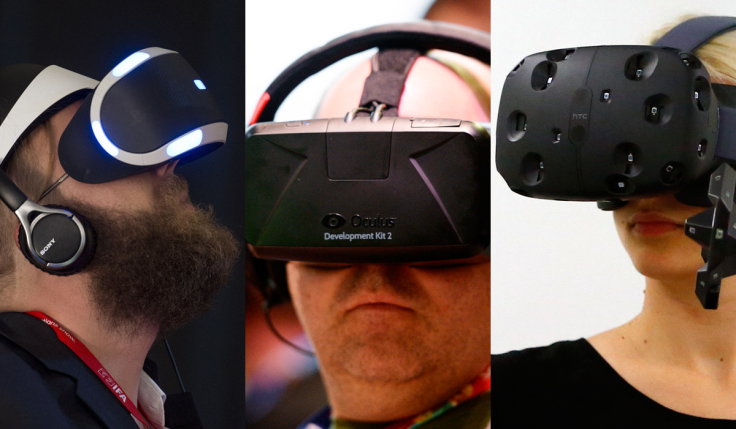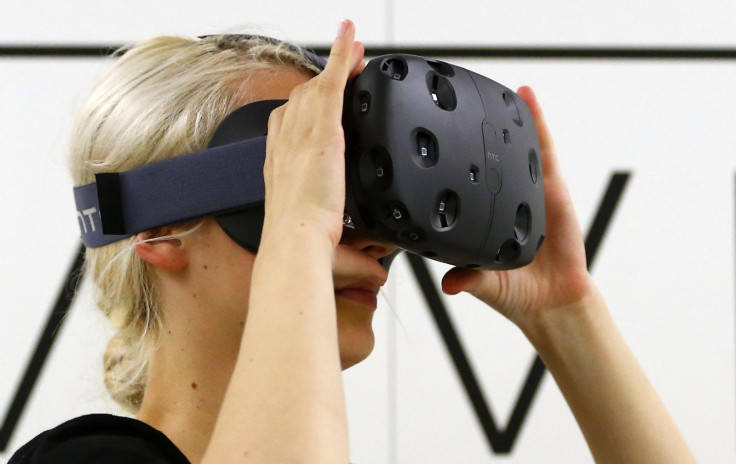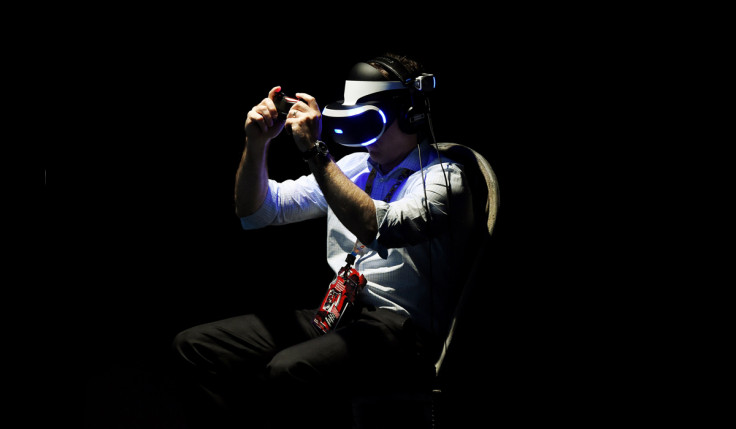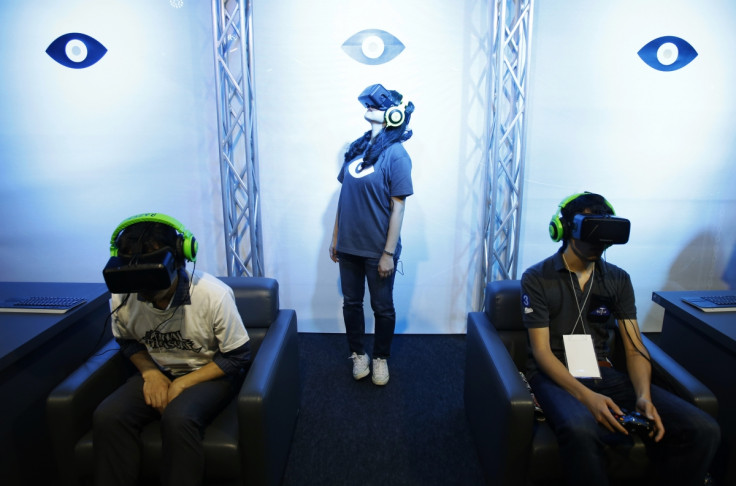PlayStation VR vs HTC Vive vs Oculus Rift preview: Hands on with the year of virtual reality

"Right now, VR is the most exciting thing happening in all of technology," declared George Kelion, Communications Manager for nDreams, just moments after I finished playing a demo of his studio's upcoming virtual reality game, The Assembly. It becomes clear from the way that he speaks about VR that he is passionate about the subject and truly believes his bold claim.
Virtual Reality is something that the games industry has tried to achieve for years but up until now it has never really worked. The Virtual Boy was a spectacular failure and Sega's arcade headset also failed to set the world alight. The troubled history of VR has made many sceptical about the wave of new hardware set to launch next year, but having tried all three major headsets I can safely say this isn't another fad, not another failed attempt - this is exactly what we have been waiting for.
HTC Vive

Out of all three of the main VR headsets it was the HTC Vive that truly blew me away. While both PlayStation VR and the Oculus Rift primarily feature stationary experiences where you are sat down, the Vive allows you to physically walk round the virtual world by moving in real life.
The demo area was a custom built room that was perhaps no bigger than 5 meters square and wherever I moved or turned in that room it would be mirrored in the virtual world. To interact with objects in the world you hold a controller in each hand that is also mirrored, so any movements you make with your arms are also made in-game. Buttons and a touchpad on each controller allow for more precise interaction.
My demo of the Vive started out with an underwater scene in which I wandered around the deck of a sunken ship, and could bat fish out of the way with my hands. After a while a massive, what I presume to be life-size, whale swam past, just inches from my face. One of the most interesting parts of this was when I walked to the edge of the ship and looked down over the railing. I kept a safe distance and physically leaned over as to not fall, but of course there was no real threat whatsoever.
The next demo was a 3D painting experience in which I could walk through the canvas, painting as I went. The next was a mini-game in which the player towers over an airport and must grab planes and helicopters out of the air before drawing them a path to follow and safely land. Both were interesting and showed off the potential of the two controllers well, but the final part of the demo was what really got me.
In this final section I was dumped into a shop, where I was greeted by a familiar face - the shopkeeper from Dota 2. I walked around his shop, interacting with objects, including trying to pick up the Blink Dagger only for it to blink away and having a staring contest with a courier. I could also interact with certain areas to shrink down to a tiny size, the objects of the world towering above me. It was this changing sense of scale that impressed me most, it felt natural and not at all uncomfortable.
PlayStation VR

Next up was PlayStation VR (PSVR), which was perhaps the most comfortable headset of the three. It was surprisingly lightweight and had a button just below the screens where you can slide them towards and away from your face.
Unlike the Vive, the PSVR demos I tried were both stationary experiences. The first being a futuristic tank battle game, and the latter, Eve Valkyrie, a space dogfighting game from CCP. Both utilised the PS4's DualShock 4 controller, with the headset letting me look around.
Looking around the cockpit in both experiences was incredibly strange, primarily because you can see a body sat in the chair which isn't yours. However, being able to easily follow the targets with the head-tracking but still keep moving in a different direction with the controller added a great deal over traditional control schemes.
While I didn't quite feel as involved in the world as I did with the Vive it was still impressive and obviously much more practical than having to stand in an empty square room. Out of all three headsets this was the one that felt the most comfortable and the easiest to put on and remove, making it feel like the most polished of the three headsets and making the anticipated Q1 2016 launch window seem realistic.
Oculus Rift

Somewhat lagging behind, at least in terms of what I played, was the Oculus Rift. Unfortunately only the DK2 version of the hardware has been available to test in the UK so far, but even when missing key features that the consumer unit will include - such as the built in headphones - it is easy to see why so many people are excited. The unit is comfortable and fairly lightweight, meaning it is easy to move your head around in the virtual world, but I did feel like the lenses were of a lower quality than the other two headsets.
Perhaps the most interesting demo I played on the Oculus was The Assembly, which unlike most of what I had experienced up until this point is being built as a full game. In the demo, which seemed to be fairly early in development, I was automatically moved through an odd science facility while some back story was explained to me through the headset. While it didn't exactly feel like much of a game, it was certainly intriguing and I am excited to find out more about it.
Oculus is taking somewhat of a risk by launching the headset without its Oculus Touch controllers, which by all accounts are just like the HTC Vive sticks but with slightly different interactions. This leaves the floor open for HTC and Valve to sweep in with the Vive before Oculus Touch launches and steals the show. The PlayStation VR meanwhile, which relies on the DualShock and the less than amazing PS Move controllers, may well fall behind on a level playing field, but will essentially operate on its own given it is only available on PS4 – where it will monopolise the VR experience.
While it isn't exactly easy to call who will come out on top in the year of VR, one thing is for certain: video games will never be the same again.
For all the latest video game news follow us on Twitter @IBTGamesUK.
© Copyright IBTimes 2025. All rights reserved.



















